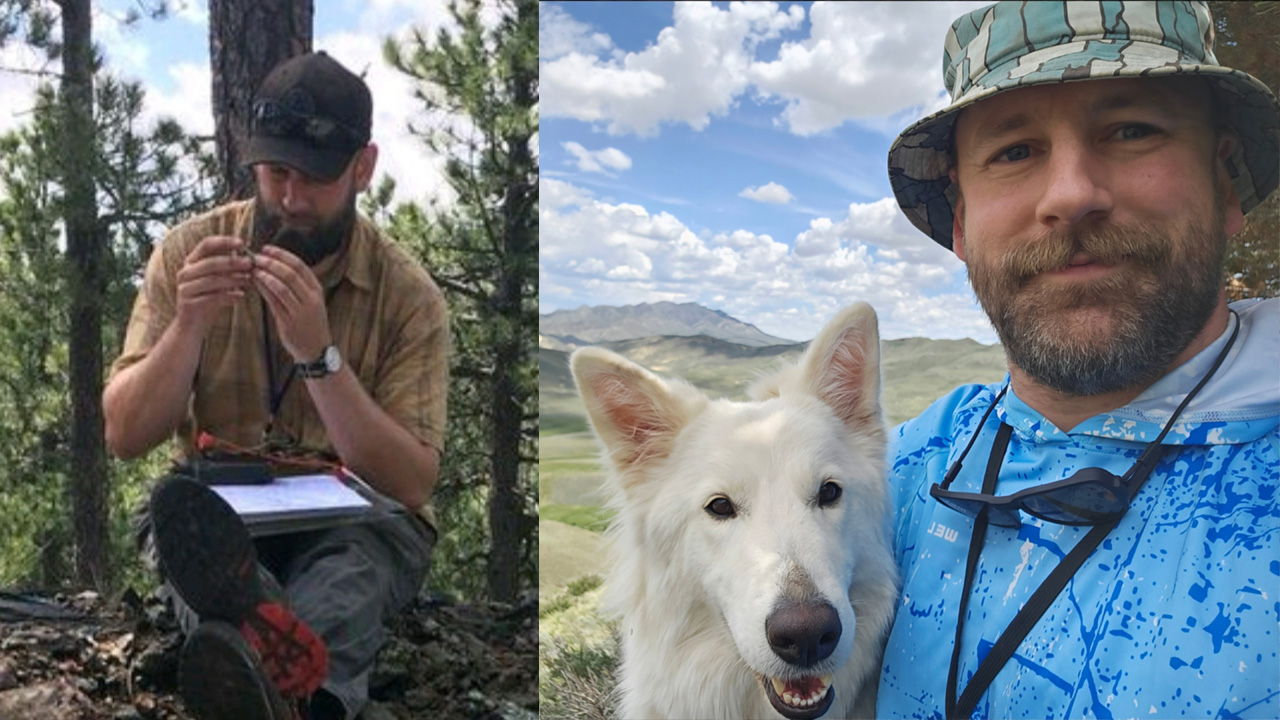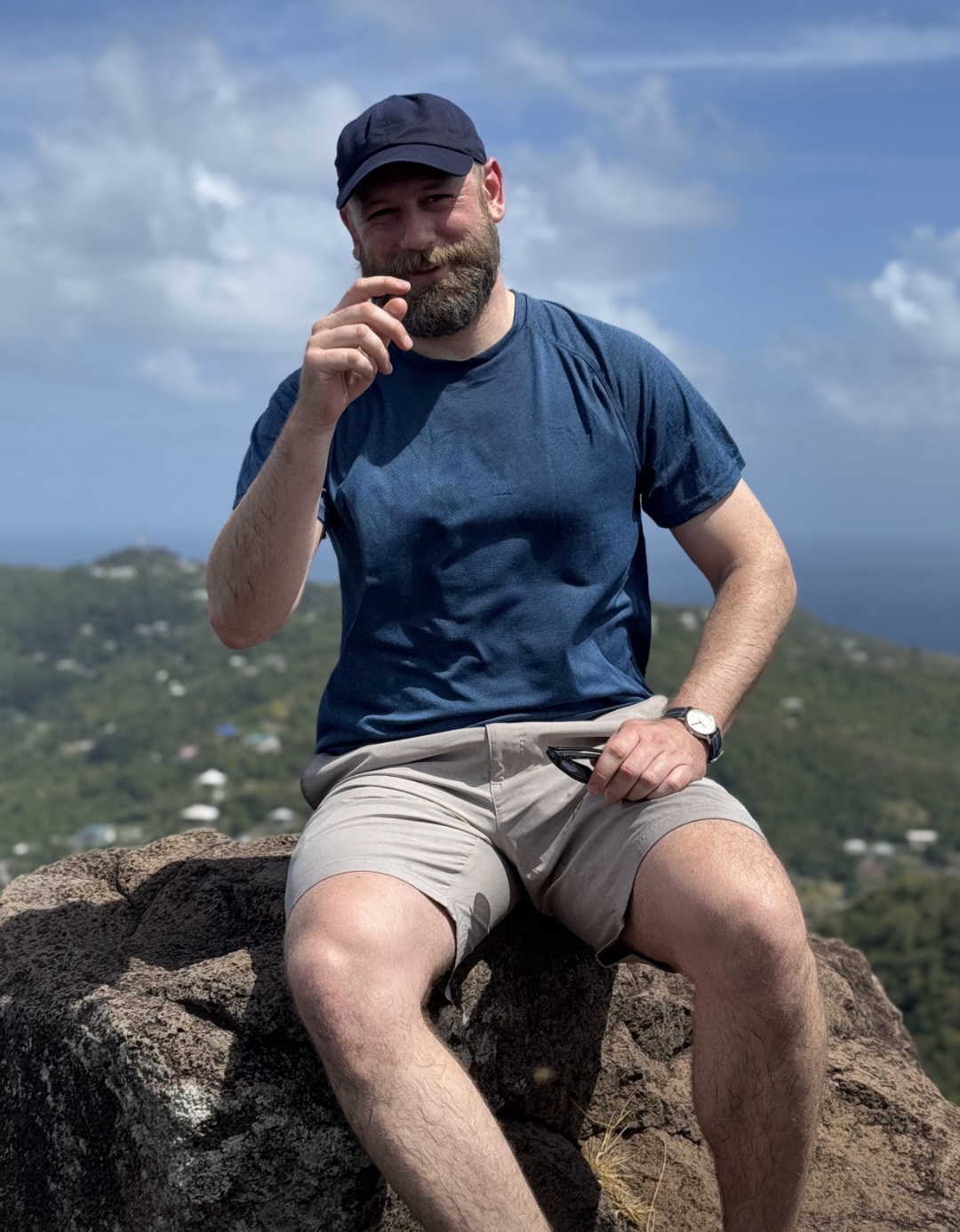
Fresh Energy is thrilled to welcome Brandon Isakson as managing director, industry to lead our heavy industry and agriculture work! Heavy industry and agriculture represent significant sources of carbon emissions in Minnesota, and by expanding into these high-impact sectors in our Vision 2030 strategic framework, Fresh Energy aims to reduce emissions from these sectors while growing jobs and economic benefits across Minnesota. Brandon’s extensive background in geologic services brings valuable expertise and perspective to this important work.
I sat down with Brandon to learn more about his career, his new role, and what excites him about joining Fresh Energy.
Tell me about your background and career path so far.
I grew up in Mankato, Minnesota and graduated from the University of Minnesota-Twin Cities with a Bachelor of Arts degree in Economics and Earth Sciences — Geology. Right after school, I joined two colleagues who had started a consulting company called Big Rock Exploration. Over the next 13 years, we grew that business into a respected geologic services firm.
I started very hands-on in the field, and around 2019 I moved away from fieldwork to take on more management responsibilities. I served as president of the company for three years. In total, I’ve worked across diverse projects that gave me insight into both traditional industries like large- and small-scale mining companies and the emerging clean energy economy in wind and battery projects. Working on a variety of industry projects has shown me firsthand the challenges and opportunities in transitioning to a clean energy economy.
You’ve worked on several renewable energy projects during your time there, right?
I’ve done site characterization work for both wind energy projects and transmission lines that carry clean energy, mainly collaborating with engineering and construction firms on clean energy infrastructure to make sure the structures had safe, stable foundations.

In recent years, I was particularly excited to work on a pumped hydro project in California — essentially a natural battery paired with a wind farm at its base. The system stores potential energy by pumping water upstream when clean energy generation exceeds demand, then releasing it later to generate electricity when electricity demand is higher. It’s fascinating technology that helps us use clean electricity more often. After that project, I started interacting with the clean energy stakeholder community more, attending conferences, and getting to know organizations with passionate people working in this meaningful space, which led me to Fresh Energy.
You bring a new perspective to the Fresh Energy team. Why is working on clean energy and climate at Fresh Energy important to you?
Well, I think climate is important to every Minnesotan, whether they’re working in the space or not. It’s interesting to see how the public, companies, and financing have started to understand how climate change is affecting our lives and pivoting their strategies around it.
I think I bring a nuanced perspective from my previous work. Throughout my career, I always felt like Big Rock was a leader in environmental stewardship for every project we worked on. I have a background in permitting with federal and local authorities, and we were always praised for our transparency, early engagement, and going above and beyond on stewardship — not just checking boxes. That’s where I felt like I was doing good work in that space, and that experience is incredibly valuable for the clean energy transition.

I appreciate that Fresh Energy is very pragmatic and realistic about an equitable energy transition in Minnesota. It’s a group of professional, passionate, and experienced individuals, and I wanted to work alongside others and ensure Minnesota is crafting strong policy to make a real, positive difference for the lives of Minnesotans.
The extraction industry has a checkered past. You can let it continue to operate as it is, a large source of climate emissions in the state, or you can be an agent of change. I was recently reading Dr. Ayana Elizabeth Johnson’s new book, What If We Get It Right?, and I think she really captured how we need to understand the energy transition as the whole, large challenge that it is, and really address all parts of the equation. We rely on the extractive industry for our everyday needs — and there are new demands for different minerals as we decarbonize our transportation, electricity, and buildings sectors. We’ll need to ensure that heavy industry can operate responsibly while providing the products necessary for this transition.
Can you tell me about your role at Fresh Energy and what you’re looking forward to working on?
As managing director of industry on the heavy industry and agriculture team, I’ll be working on one of the largest-emitting sectors in Minnesota, and one that’s long been overlooked. I’ll be working on state policy and regulatory work to reduce emissions in heavy industry.
It’s an interesting time: there are plenty of new clean technologies, and Fresh Energy will need to understand them as they evolve. Minnesota has a long, 130-year history of iron mining up north, but clean tech like green steel is a brand-new concept. Just in my first week, I was already at the Minnesota Legislature attending a hearing about geologic hydrogen.
You’ve travelled to some really great places with your work, something I love to hear about. What are some of your favorite places you’ve visited?
My favorite place is the Black Hills in western South Dakota. There’s some great dispersed camping there, and the entire region has a special place in my heart. I also spent a lot of time in northern Saskatchewan and in the Northwest Territories on an island near the Arctic Circle, which was a very neat place to work for five years with lots of wildlife like caribou, wolves, and wolverines. I loved it there. And my career has brought me all over the western U.S., which have a lot of great places to explore, too.
That brings me to my final question: what do you like to do when you’re not at work?
Mostly outdoor hobbies. I grew up on a lake near Mankato, so I like sailing, boating, fishing — the lake culture Minnesotans love. I usually make it up to the Boundary Waters once or twice a year for camping, and I do a bit of hunting and fishing as well.
Thanks for sharing with us, Brandon! We’re so glad to have you on the new heavy industry and agriculture team and look forward to the great work you’ll do to help decarbonize these sectors across Minnesota and the Midwest.
Stay tuned for more from Brandon soon!
